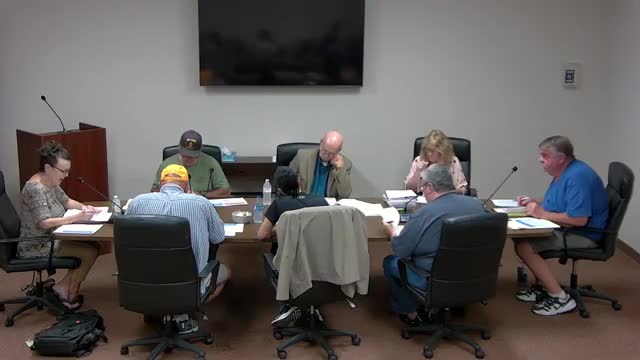Coffee County schools present $52.2 million draft budget, propose 4% staff pay increase and new after‑school program
Get AI-powered insights, summaries, and transcripts
Subscribe
Summary
School officials presented a draft 2025–26 budget that relies largely on state funding, proposes a 4% across‑the‑board pay increase for certified and classified staff, adds an elementary art program and after‑school services the district plans to charge $5 per day to attend.
Coffee County school officials presented a draft 2025–26 budget to the county Budget and Finance Committee on April 5, saying the district expects roughly $52.2 million in total revenue and is proposing a 4% pay increase for all certified and classified staff.
The presentation, given by a school system representative identified in the meeting as April, said the district used current local revenue figures and March state estimates to build the budget. April said the district’s largest revenue source is state funding—citing an estimated state allotment of about $33,460,000 for the 2025–26 school year—and an increase of roughly $800,000 compared with prior estimates. The draft shows projected total revenue of about $52,200,000 for the full year.
The nut graf: The draft raises all staff 4% and adds programs that shift some costs to families in the short term. District officials said the increases are intended to accelerate a requirement that all teachers reach a $50,000 minimum by the 2026–27 school year and to preserve or expand student services.
School staff told the committee the 4% increase would reduce the number of teachers earning below $50,000 from about 43 to roughly 24, though April cautioned new hires could change that count. The budget proposal assumes the state’s Teacher Incentive/Support allocations (referred to in the meeting as the TISA allotment) will continue to increase and help the district reach the $50,000 minimum for new teachers beginning in the 2026–27 school year.
On programs, the budget includes a board‑approved after‑school program intended to replace a lost external “Excellence” program. The district estimates the program’s gross cost at about $213,000 and projects roughly $90,000 in revenue if participants pay $5 per day; April said the district will monitor attendance and scale staffing or operations if actual participation differs from survey estimates. The district estimated the fund‑balance impact of the after‑school program at about $120,000 in local funds for now.
The draft also adds an elementary art program that would hire three teachers to be split among six schools, and four other new positions districtwide: a math teacher, an English teacher at the high school, a librarian position for Hickerson, and a speech‑language pathologist. April said fuel and other flat expenses were adjusted for inflation but otherwise the budget is similar to the current year.
April told the committee she expects the district’s unassigned fund balance to end the year near $13.4 million in the current estimate and that a 4% raise would reduce the fund balance by roughly $200,000 compared with a baseline that included an estimated addition to fund balance of about $1 million.
School nutrition director Carlin Cotton separately presented the cafeteria budget, saying labor and food are the main expenses and that she also budgeted a 4% increase for next year to align with the general fund. Cotton said she is considering applying for the Community Eligibility Provision (CEP) so eligible students could receive free meals; she noted that Coffee County currently does not qualify like neighboring Tullahoma but that she hopes to pursue CEP pending federal program rules and verification. Cotton also said food prices and labor costs have risen and the nutrition fund carries a substantial balance from COVID‑era reimbursements that she is drawing down.
Committee members asked about contingency plans if after‑school attendance is lower than forecast; April said the program manager will scale staffing and transportation plans based on participation. Members also asked about the district’s discussion with the county attorney and school board counsel; April said attorneys had spoken but that the county attorney was not satisfied with the outcome of the initial conversation.
The budget presentation was informational; committee members did not take a final vote on the school budget during the meeting. April invited committee members to contact her with follow‑up questions before the budget goes to the full commission.
